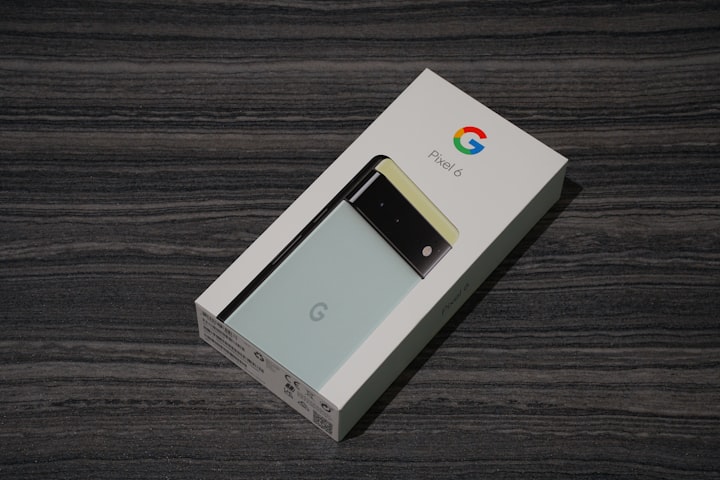Google's Pixel 6, The Future of Phones
Google's Pixel 6 phones are changing the way we interact with our devices, and redefining what a "smartphone" is in the process.

Since 2006, smartphones became a main staple in our pockets. And while evolution of the smartphone has undoubtedly occurred, it has stayed with in the same parameters for the most part.
Phone makers through the years have focused mainly on bettering the cameras, the screen technology and adding battery life. Even with all those changes geared at making the users life easier, most of those changes didn't change the way in which we actually use our phones.
Enter Google's Pixel phones - mostly known both for their amazing cameras and their unfortunate hardware issues. But, this year's Pixel 6 could be a turning point for the search engine giant, moreover it might be the first step into mobile tech's future.
Pixels, The Phone Only a Nerd Could Love
Pixel phones tend to evoke strong feelings in those who use them. There seems to be two camps - the OG tech heads who migrated from Google's now defunct Nexus line of phones and the other group existing of iPhone or Samsung ex-pats.
If you came from the Nexus brand, you understand Google's "vision" and jump at the opportunity to be a part of bringing it to fruition. If you're coming from iPhone or Samsung, you're probably less forgiving of Google's short comings and half-baked ideas.
When the rumors started that Google had plans to make their own chip to power their upcoming Pixel phones there was definitely feelings of anxiety and trepidation. It would be the first time Google -a company known for its software prowess - was not only making its own hardware, but also the silicon that would power it. Meaning Google wasn't just trying to make a flagship worthy to take on Android's biggest names - no, Google wanted to compete with the juggernaut commonly known as Apple.
To compete on Apples level they would have to offer features not merely on par with Apple's, they would need to out shine them.
Enter Artificial Intelligence (A.I)
The virtual assistants on phones have only needed to do a few things well. Set reminders, timers, and occasionally a badly composed text message or a simple voice search.
That has all changed with the Pixel 6 and Pixel 6 Pro. Thanks to the new Tensor chip set the bar has been raised in A.I.
After having this phone for just over a week I have noticed the simple and habitual ways I interact with my phone start to change.
Every day, we tap, swipe, pinch, and flick at our phone screens hundreds of times. And while that is still true here with the Pixel 6, I have noticed I spend more and more time talking at my phone… and it talks back.
Certain features like the "Always Listening'' feature of Google Assistant has been a staple of Google's for a long time, but now it's more fluid. Using the hot words "Hey Google" feels less intrusive and more natural. It's the ability to understand a more relaxed tone of voice, and not be tripped up by accents that allows you to speak conversationally with your phone as opposed to the more sterile feeling of dictation often experienced with Siri. With the new Tensor chip it finally feels like a finished product.
The Tensor chip's ability to understand human speech has other real world applications. From being able to control functions on the phone like stopping a timer to real time translation and transcription.
Privacy
Before the freak out over privacy, these features are done on the phone. But speaking of privacy, Google now has taken a more proactive role in protecting users data. Not only do they alert you when an app accesses your camera or microphone, but you also have an easily accessible toggle to turn off the camera and microphone in notifications shade.
Google has also made it easier for you to access your own Google account right from the phones settings. Whether you want to revoke Google's access to your location, or just delete your location history all together, it's more straightforward than before. Google also now shows you suspicious activity with your accounts, and helps you fix the issues.
Building an Ecosystem
Ask any iPhone user why they love iPhones and they will tell you it's the ecosystem. Sure, they may not say those exact words but that's what it boils down to. Whether it's iMessage and Facetime, or the way all Apple products work together seamlessly. Or the way apps undoubtedly work better with iPhone than they do Android phones, it all comes back to Ecosystem.
Google has finally gotten itself together with messaging. After many, many failed attempts at trying to find a counter solution to iMessage they have settled on a universal RCS profile.
Rich Communication Services or RCS, allows many of the same features you find in iMessage or any other IM app. Sending videos, reactions, typing and read indicators are all baked in with the Pixel phones.
Even better still is that, now all US carriers work with RCS. Which mean other Android phone brands can download Google's proprietary messaging app from the Google Play Store and be in on the RCS fun too!
Google also has put a lot of work into hand-off features like allowing you to connect your phone to your windows computer. Much like iPhone and Mac's, you can reply to text messages and video calls right on your computer. This feature is not a Pixel exclusive, but is definitely worth noting.
However, the optimization of social media apps for Pixel phones is an exclusive feature.
Gone is the days of Instagram and Snapchat posting screenshot of your photos. The new Tensor Chip in the Pixel 6 and 6 Pro's are optimized to use the phones hardware. In other words, much like on iPhone if you take a picture in Snapchat it uses the phones camera directly, whereas on Android it has taken the image you captured - and screenshot it - which of course lead to a degradation in the quality of the photo. Now, these apps are optimized to use the Pixel 6 line of cameras in the same way it does with iPhones.
Final Thoughts
As a tech nerd I love all mobile gadgets, including Apple. But, I've always been in the "OG Google Nexus" group of Pixel users, which means even with all the previous Pixel phones shortcomings, I could see where they wanted to go with the Pixel line. And for the first time I think they were actually successful. Whether that will be enough to go toe-to-toe with Apple is yet to be seen, but this was a great first step in that direction.
The Pixel 6 feels polished in a way none of its predecessors did, and while it can still use some improvements and fine-tuning, Google is known for not only patching bugs, but consistently having feature drops bundled into it's security updates. Which means, this phone gets better on a monthly basis.
In the past week of using this phone I have been pleasantly surprised at all the little tweaks they put into the older features. But the way new features enhanced not just the user experience, but add value to real-life interactions has my tech nerd brain dancing with glee. Real-time translations from one language to another is one such feature that could change life going forward. From mundane things like ordering a coffee while traveling abroad, all the way to emergency situations where a language barrier could be detrimental will benefit from this technology.
There is a lot to be said for brand loyalty, and for comfort zones though. And while Google is finally moving the Pixel line in the right direction, it is going to take a lot of PR to turn the tides of popularity in their favor- at least here in America, where the blue bubble vs green bubble is a status symbol.
One issue that needs to be addressed by Google to their future customers if they want to compete with the likes of Apple is Adaptive Battery and what it means. I have seen a lot of comments on how the battery life of the Pixel is unforgivably bad and so, they had returned it. Pixels use Adaptive Battery technology, and if you've never encountered it before it can be confusing. With a phone that uses Adaptive Battery, it can take a good week for the phone to learn your usage/charging patterns and adapt itself to them. After that period, the battery evens out and you will see a drastic difference.

I now get 5–6 hours of screen on time, but it took a whole week to get there.
If you're looking for a solid upgrade, and are ready to try a bit of the future before it becomes "commonplace", I would definitely recommend giving one of the new Pixel phones a go! You can find great deals on both the Pixel 6 and the Pixel 6 Pro at carriers or unlocked through the Google Store.
About the Creator
Leigh Robbins
Freelancer writer, blogger, mental heath advocate, and tech reviewer.






Comments
There are no comments for this story
Be the first to respond and start the conversation.